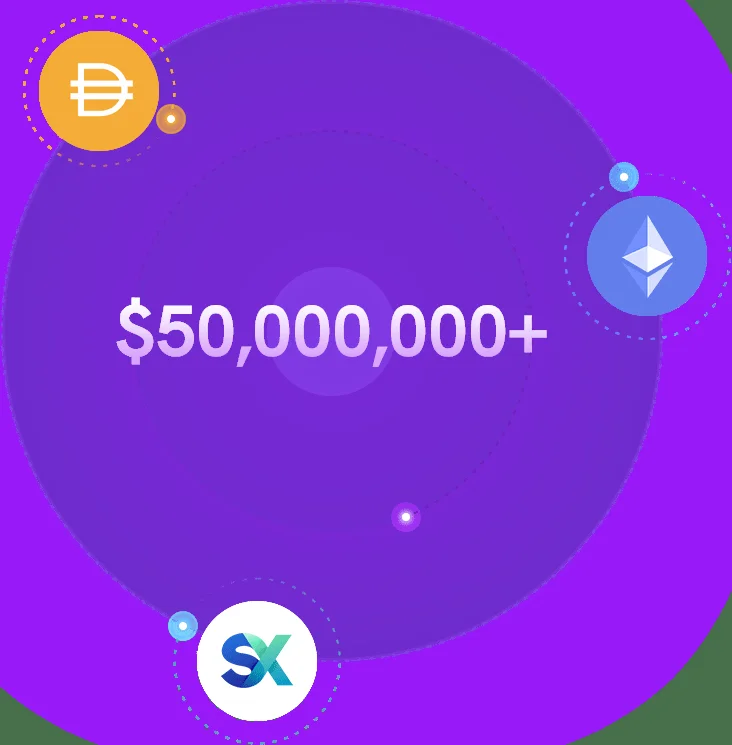SX Network's Berachain Pivot: A Data-Driven Analysis of the Strategic Rationale
The 'SX' Brand Is a Semantic Minefield. Here's What the Data Shows
An analysis of public communications over the past year reveals a peculiar data collision centered on two letters: S and X. Depending on the context, "SX" can refer to a decentralized sports betting protocol, an industrial copper extraction method, a seven-figure expedition vehicle, or a premier motocross championship. These are not subtle variations on a theme. They represent four entirely distinct, non-overlapping universes of commerce, technology, and culture.
This isn't just a trivial branding coincidence. It's a case study in semantic dilution, where a single identifier is mapped to a chaotic set of unrelated concepts. For investors, consumers, and even the companies themselves, the result is a significant signal-to-noise problem. When a brand name requires a disambiguation page, something has gone fundamentally wrong.
Let's examine the data points. We have SX Bet, a Web3 platform that has processed over $675 million in wagers with a reported 93% year-over-year growth in volume. It’s a high-growth, high-risk digital asset play. Simultaneously, Gunnison Copper Corp. (TSX: GCU) announced the start-up of its Johnson Camp Mine SX plant, where "SX" stands for solvent extraction, a hydrometallurgical process to purify copper. This is old-world industry: tangible, regulated, and critical for physical infrastructure.
Then, we have the lifestyle sector. An EarthRoamer SX-005, a mobile fortress built on a Chevrolet 6500HD chassis, recently listed for over a million dollars—$1,110,000, to be precise. Here, "SX" is a model designation, a signifier of extreme luxury and off-grid capability. And finally, there's the San Diego Supercross, or "San Diego SX," a major motorsports event broadcast on NBC's Peacock platform, drawing a massive mainstream audience to watch the 450SX and 250SX class races. You can practically smell the exhaust and hear the roar of the crowd at Snapdragon Stadium just reading the press release: SuperMotocross RD#2 San Diego SX 2025: Live Streaming, Date, Time, TV Channel, Schedule, Where & How to Watch Monster Energy AMA Supercross Free on SuperMotocross TV.
These four entities are effectively broadcasting on the same frequency, creating a cacophony of brand messaging. The question is, who gets drowned out?

Quantifying the Semantic Noise
The core issue here is a battle for cognitive real estate, and it's a battle that's fought in search engine results, investor terminals, and media mentions. Think of it like trying to tune an old analog radio. You’re searching for the faint, emerging signal of a new station (SX Bet), but the dial is dominated by the powerful broadcast of a national sports league (Supercross). At the same time, you're getting persistent industrial hum from a nearby factory (Gunnison's SX plant) and the occasional, bizarrely clear transmission from a pirate radio station broadcasting to a tiny, wealthy audience (EarthRoamer).
For an established entity like the AMA Supercross, this is irrelevant background noise. Their brand is secure, their audience is defined, and a confused Google search from a crypto trader has zero impact on their ticket sales. For Gunnison Copper, their use of "SX" is industry jargon, spoken to a specialized audience of engineers and commodity traders who are unlikely to confuse a solvent extraction circuit with a dirt bike race.
The real exposure to risk lies with the newer, digital-native entity: SX Bet. This company is attempting to build a global brand in the hyper-competitive Web3 space, yet its chosen name is already one of the most semantically overloaded acronyms in use. I've analyzed brand launches for years, and willingly stepping into a pre-existing search term with this much noise is a fundamentally questionable strategy. Every dollar spent on marketing has to first fight through three other unrelated contexts before it can even begin to communicate its own value proposition.
This raises an immediate set of questions that the press releases don't answer. What was the due diligence process that led to this name? Was the existing semantic landscape for "SX" deemed an acceptable risk, or was it simply overlooked? More importantly, what is the quantifiable cost of this confusion in terms of customer acquisition and brand recall? Are they spending exponentially more on targeted advertising just to reach an audience that isn't looking for a million-dollar truck or a copper mine?
The numbers for SX Bet are impressive on their own—$675 million in volume is not trivial. But one has to wonder how much friction is being introduced by a name that simultaneously means everything and nothing. It forces a potential user or investor to perform an extra layer of analysis just to confirm they're even looking at the right company. In the fast-paced world of digital finance, that's a significant, self-inflicted headwind.
A Failure of Strategic Positioning
This is more than just a branding curiosity; it's a lesson in the architecture of information. A company's name is its primary key in the global database of commerce. When that key is not unique, it creates data collisions that can have real financial consequences. While Supercross and EarthRoamer will continue to thrive in their respective niches, and Gunnison Copper will keep extracting minerals, SX Bet faces an uphill, and frankly unnecessary, battle to define itself against a wall of pre-existing noise. The data shows they have a product with traction. The name, however, suggests a critical failure in strategic positioning.
-

Warren Buffett's OXY Stock Play: The Latest Drama, Buffett's Angle, and Why You Shouldn't Believe the Hype
Solet'sgetthisstraight.Occide...
-

The Business of Plasma Donation: How the Process Works and Who the Key Players Are
Theterm"plasma"suffersfromas...
-

The Great Up-Leveling: What's Happening Now and How We Step Up
Haveyoueverfeltlikeyou'redri...
-

NJ's ANCHOR Program: A Blueprint for Tax Relief, Your 2024 Payment, and What Comes Next
NewJersey'sANCHORProgramIsn't...
-

The Future of Auto Parts: How to Find Any Part Instantly and What Comes Next
Walkintoany`autoparts`store—a...
- Search
- Recently Published
-
- Stock Market 'News': Today's US Market Spin and the 'Live' Updates
- IRS Direct Deposit Relief Payments: What This Breakthrough Means for Your Financial Prosperity
- Bilbao: What the Data Reveals
- Outback Steakhouse Closures: The Financials Behind the Shutdown and Which Locations Are Gone
- The Burger Bubble Just Popped: Why Your Go-To Spot is Next on the Chopping Block
- The Bio-Hacked Human: What the New Science of the Core Reveals About Our Future
- Ore: What It Is and Why It Matters
- Firo: What is it?
- Avelo Airlines: FAA Cuts and the Lakeland Linder Opportunity
- Rocket Launch Today: What Happened and the Mystery Fireball
- Tag list
-
- Blockchain (11)
- Decentralization (5)
- Smart Contracts (4)
- Cryptocurrency (26)
- DeFi (5)
- Bitcoin (29)
- Trump (5)
- Ethereum (8)
- Pudgy Penguins (5)
- NFT (5)
- Solana (5)
- cryptocurrency (6)
- XRP (3)
- Airdrop (3)
- MicroStrategy (3)
- Stablecoin (3)
- Digital Assets (3)
- PENGU (3)
- Plasma (5)
- Zcash (6)
- Aster (4)
- investment advisor (4)
- crypto exchange binance (3)
- bitcoin price (3)
- SX Network (3)
